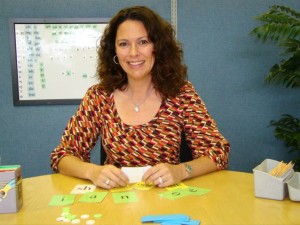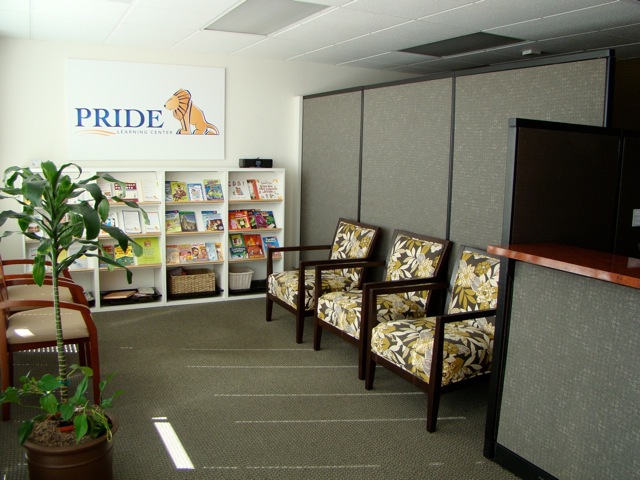
by PRIDE Reading Program Admin | Apr 12, 2015 | A PRIDE Post, Dyslexia
Parents are always asking me what they can do to help their dyslexic child. My first response is to most importantly get the child into an Orton-Gillingham program that will give them the necessary skills for reading, writing and spelling improvement. This will need to be done by a trained specialist and should be the number one priority for the dyslexic child.
Keep in mind that the trained dyslexia professional is helping your child by doing the difficult work for you. They are doing reading activities and skill training. It won’t necessarily be for fun and pleasure. So, this is the perfect time that you as a parent get to just read together with your child for fun and pleasure. This is what you the parent can do to give your child the dyslexia help at home they need.
Most likely you will be working with your child after school when they are tired and less receptive to learning and when you, too, are not at your most energetic or patient, therefore, I recommend that you read together with your child for at least thirty minutes each evening making it fun and not a chore for either of you. Evenings spent reading together build a lifelong pattern of enjoyment. A child who avoids reading is among those most in need of practice and guidance, and is especially helped by your reading aloud with him.
When reading for pleasure, allow your struggling reader to relax and listen attentively without being expected to read. You should still encourage your child to sit next to you, so he can see the pages of the book as you read. If you are helping your child with a book that must be read for school, encourage your child to participate by taking turns reading; you can ask your child to read a sentence or a paragraph, then read several paragraphs yourself, then let your child have another turn.
In books with a lot of dialogue, another technique for shared reading is to let your child take the role of one (or more) or the characters, reading the quoted words for that character. This is also a good opportunity to help your child focus on punctuation, such as quotation marks, commas, periods, exclamation points, and question marks. Many children with dyslexia do not understand what punctuation means, and they tend to ignore or disregard punctuation marks when reading because they are so focused on trying to decipher the letters and words. With oral reading, punctuation takes on added significance, as it provides information about when the reader should pause and the intonation that should be used.
When your child is reading aloud, do not interrupt to correct mistakes that do not change meaning, such as reading “mom” for “mother.” Frequent interruptions will cause your child to lose confidence and make comprehension more difficult. If your child stumbles over a word, simply tell her what it is. Do not try to use teaching techniques such as having her sound out words at this time. Instead, enjoy the story together, discuss the plot, and praise your child for her efforts when she reads aloud and is able to figure out some words on her own.
Your child may find it helpful to hold an index card or ruler under each line of text as he reads. This will help him stay focused on the text. It is also possible to purchase a reading guide with a colored filter in the center, which is designed so that your child can move it down the page as he reads.
Some children prefer fiction while others prefer nonfiction. By pairing them, your child will be exposed to both genres. Your child will also love discussing these books together with you.
Because a child with dyslexia needs very individualized and specialized reading help, I recommend that parents become the child’s biggest helper. Teaching a child with dyslexia how to read is a complex task, but with a loving touch and good humor, you the parent can most definitely accelerate your child’s progress.
Learn more about the New PRIDE Reading Program
____________________________________________________________________________________

Karina Richland, M.A. is the Founder of PRIDE Learning Centers, located in Los Angeles and Orange County. Ms. Richland is a certified reading and learning disability specialist. Ms. Richland speaks frequently to parents, teachers, and professionals on learning differences, and writes for several journals and publications. You can visit the PRIDE Learning Center website at: www.pridelearningcenter.com

by PRIDE Reading Program Admin | Feb 14, 2015 | A PRIDE Post, Reading Disability
Reading is an important first step on a child’s path to success in life. A child that is an excellent reader is a confident child, has a high level of self -esteem and is able to easily make the transition from learning to read to reading to learn. For many of us reading is a natural process and we can read with ease and pleasure. Unfortunately, for a child with a reading disability, the reading process can become a frustrating and negative experience and is often very difficult to master.
What is a Reading Disability?
A reading disability is an inherited condition that makes it extremely difficult to read, write, and spell despite at least an average intelligence.
Learning to read is a sequential process. Each new skill a child learns builds on the mastery of previously learned skills. First, a child learns to break down words into their most basic sounds, which we call decoding. Later on, the child begins to comprehend the meaning of words and sentences, which we call reading comprehension. Decoding is an essential step in the reading process since it forms the foundation of reading. For a child with a reading disability, decoding does NOT come naturally and is NOT an automatic process. Most reading experts will agree that decoding problems is the basis of most reading disabilities.
Does my child have a reading disability?
Some signs of a reading disability:
- Child has difficulties sounding out words
- Slow laborious reading
- Reads without expression
- Ignores punctuation while reading out loud
- Guesses based on first letter of word
- Puts extra sounds into a word
- Drops syllables
- Reverses sounds
- Struggles with spelling
- Substitutes small common words
If your child is struggling in reading and showing the above symptoms, there may be good reason for you to request an immediate assessment. As a parent you want to be certain that you are providing what is needed for your child to succeed in school. To know what is necessary, an assessment is the first thing to do in order to identify the issues to remedy.
What is an assessment?
An assessment is simply a standardized test performed by someone trained and licensed to understand how to give the test and how to interpret the results. Specialists trained to do psychological testing and result interpretation are:
- Clinical psychologist
- School psychologist
- Educational psychologist
- Developmental psychologist
- Neuropsychologist
- Speech and language therapist
How do I get help?
A child with a reading disability will take in and process information differently and needs to be taught by specialists. Students with a reading disability will need to work with a specially trained teacher, tutor, or reading specialist to learn how to read and spell. Students who have been assessed and diagnosed through the school district might qualify for Special Education Services. Children with a reading disability progress best with a sequential, repetitive, systematic and cumulative structured reading program. Fortunately, with the proper assistance and help, most students with a reading disability are able to learn to read and develop strategies to become successful readers.
When is the best time to get help?
Effective early intervention is the key to helping a struggling reader learn to read. This training needs to begin sooner rather than later for the bet results. According to the National Institute of Health (NIH), 95% of children who have trouble learning to read can reach grade level if they receive specialized help early on. Kindergarten to the middle of first grade are the “window of opportunity” to prevent long term reading problems. Without early intervention, the “reading gap” might never close.
There is no reason why a child with a reading disability cannot learn to read and comprehend well. It is important that we never lower the expectations of a child with a reading disability. Children need to feel that even though they are struggling, they are loved and not being judged. So be encouraging and patient and praise often.
Learn more about the New PRIDE Reading Program
Karina Richland, M.A. is the Founder and Director of Pride Learning Centers, located in Los Angeles and Orange County. Ms. Richland is a certified reading and learning disability specialist. Ms. Richland speaks frequently to parents, teachers, and professionals on learning differences, and writes for several journals and publications. You can reach her by email at karina@pridelearningcenter.com or visit the Pride Learning Center website at: www.pridelearningcenter.com

by PRIDE Reading Program Admin | Sep 12, 2014 | Pride Redondo Beach
You are invited to an Open House at PRIDE Learning Center in Redondo Beach!
September 19, 2014
10:00am – 2:00pm
PRIDE Learning Center is a non-public agency (NPA) providing high quality and cost-effective reading, writing, comprehension and math tutoring services. We are located in Orange County and Los Angeles and also provide on-site services as well.
- Our teachers are all credentialed reading specialists with Orton-Gillingham Certification and strong special education backgrounds.
- Our average student progresses one complete grade level in 4-6 weeks!
- Flexible after-school hours, intensive reading therapy and fun summer camp programs.
Come to our OPEN HOUSE and meet our wonderful staff and learn more about our research-validated programs. We will have light refreshments.
We are looking forward to meeting and networking with you!
Regards,
Cindy Ragsdale, M.Ed.
Redondo Beach Center Director
T. 310-322-2800 Ext. 6
Email: rb@pridelearningcenter.com
www.pridelearningcenter.com

by PRIDE Reading Program Admin | May 20, 2014 | Summer Programs
Summer is the perfect time to catch up on any learning deficiencies your child may have. By dedicating more time than is possible during the school year, a student can make a remarkable amount of progress during the summer – as much as a year’s progress in just 4-6 weeks!
In addition, working on skill-building during the summer months prevents further deterioration of skills – the dreaded “summer slide.”
At PRIDE Learning Center we offer an amazing summer program to help students enter the new school year prepared to meet and exceed classroom expectations.
Students attend Monday – Friday from 9:00am – 12:00pm or 12:30pm – 3:30pm.
Parents can sign up for any weeks between June 2nd and August 29th
We have locations in Redondo Beach, Newport Beach, Mission Viejo and San Clemente.
Struggling Readers
For students struggling to learn to read, we offer out intensive Orton-Gillingham reading program. Your child will work one-on-one with our credentialed and Orton-Gillingham Certified teachers (not tutors) using the best research-based and multi-sensory materials. At PRIDE Learning Center we specialize in helping children with learning differences by focusing on the underlying foundational skills that are preventing your child from reading.
Reading Comprehension
Designed for students who know how to read fluently but are struggling with comprehension, this intensive program teachers your child strategies and skills to improve “Reading to Learn.” The goal of this program is to teach children to be efficient readers so that they can learn the content begin taught in any of their classes. These are skills that must be explicitly learned, they do not come naturally to many students. At PRIDE Learning Center, our highly effective comprehension program provides students with the ability to conceptualize mental images that match content, and use language to describe those images. Starting at a concrete level and moving towards more abstract concepts, we are able to help students visualize the content of what they are reading.
Basic Math Skills
Our math program is for students of all ages who are struggling with basic math concepts. At PRIDE Learning Center, we build an understanding of mathematical concepts by using visual learning tools, game playing and exercises that engage all the senses. Our one-on-one, multisensory math program gives students a strong math foundation. Students master their number facts and numerical fluency. They are given the essential tools for a strong math foundation.
Writing Skills
Our writing skills program effectively teaches essential skills in careful order: from parts of speech, to sentence structure, to paragraphs, to complete essays. For the reluctant beginner writer, our program provides the essential foundation in thinking and writing skills. For the more proficient and advanced writer, it offers opportunities, strategies, and techniques to apply them.
For more information on our summer programs call us at 866-774-3342 ext. 1 or you can email us at: info@pridelearningcenter.com

by PRIDE Reading Program Admin | Mar 18, 2014 | A PRIDE Post, Reading Disability
Intervene early! Reading disabilities are considered to be the most common learning disability and are often not diagnosed or treated until it is too late for easy recovery. A child with a reading disability that is not identified until the third grade or later is already years behind his or her classmates. This is a gap that must be closed if the child is ever to catch up with his or her peers. The best intervention is in kindergarten or remediation beginning in the first grade.
Teach phonics. Through phonics, children learn to associate sounds and form connections to word recognition and decoding skills needed for reading. Research clearly proves that phoneme awareness performance is a major predictor of long- term reading and spelling success. In fact, according to the International Reading Association, phonemic awareness skills in kindergarten and first grade appear to be the most important predictor of successful reading acquisition.
Teach spelling. Spelling and reading rely on the same mental representations of a word. The correlation between spelling and reading comprehension is high because both depend on proficiency with language. The more profoundly and methodically a student knows a word, the more likely he or she is to recognize it, read it, spell it, write it, and use it appropriately in speech and writing.
Teach writing. Start teaching writing in preschool and kindergarten. Learning to write engages the brain in repetition and memory on how letters and sounds reflect meaning, addresses numerous reading and cognitive skills, and helps activate both reading and spelling areas of the brain.
Teach handwriting. Technology is a fun writing tool for kids but it doesn’t engage the early reading brain in the same helpful way as learning to move the pencil across the page to use letters as images of sound. Brain scan studies show that early lessons in letter formation help activate and coordinate reading connections in the brain.
Repetition, repetition, repetition. The brain of a child feeds on repetition to make doing things such as reading automatic and fluent. Use repetition in the early grades for reading aloud, for rhyming, for matching letters with sounds, for writing alphabet letters, for spelling, for sounding out words, for automatic reading of sight words, for making meaning in print. Children thrive on it. So make it fun!
Don’t ever give up on your child. Keep the expectations of your child and their reading future high. We owe it to our children to show our support, give them every resource possible to help them and give them the skills necessary for learning and communicating throughout their education and their lives.
________________________________________________________________________________________________________

Karina Richland, M.A. is the Founder and Director of PRIDE Learning Centers, located in Los Angeles and Orange County. Ms. Richland is a certified reading and learning disability specialist. Ms. Richland speaks frequently to parents, teachers, and professionals on learning differences, and writes for several journals and publications. You can visit the PRIDE Learning Center website at: www.pridelearningcenter.com
Page 5 of 7« First«...34567» 





